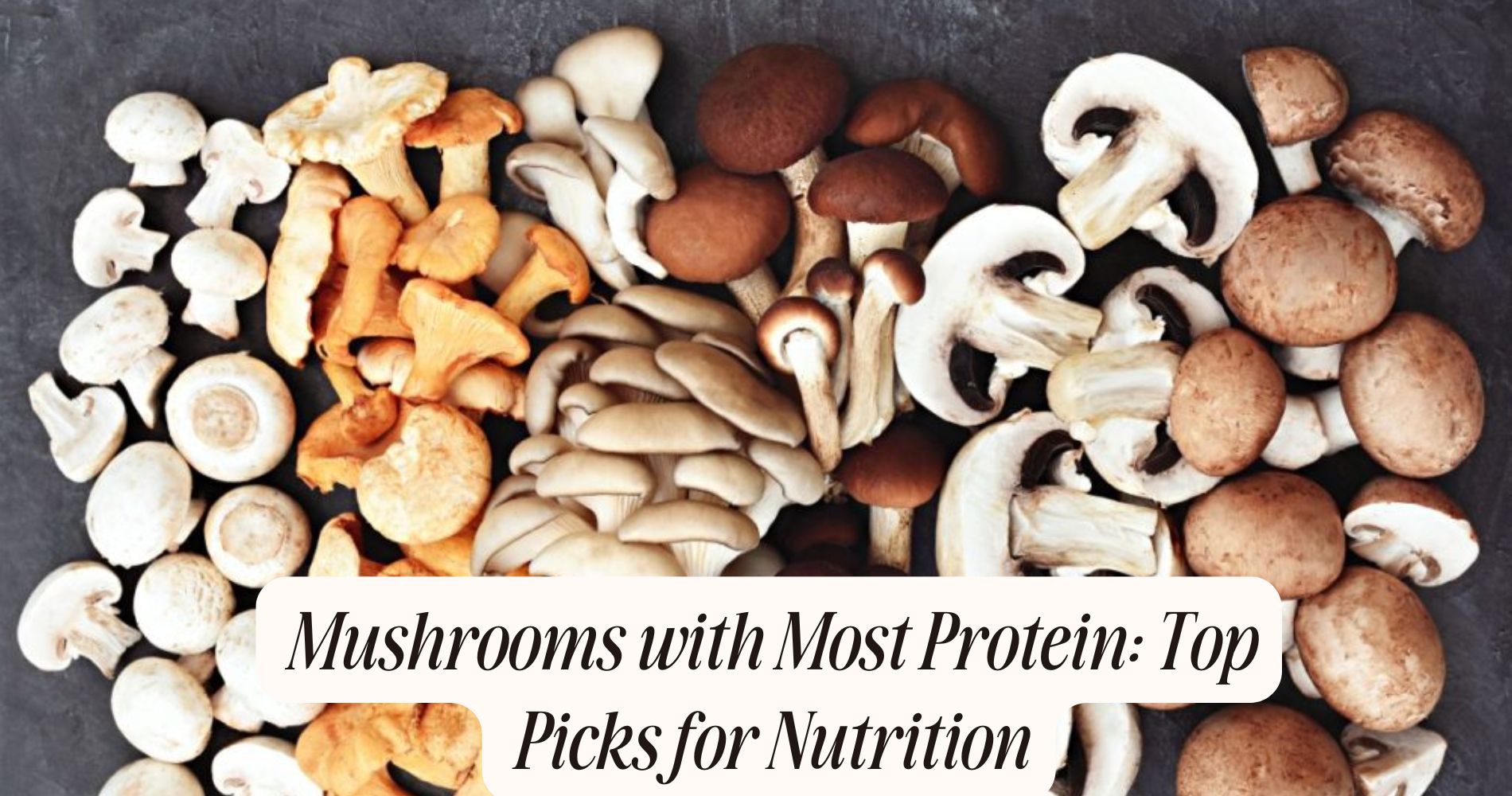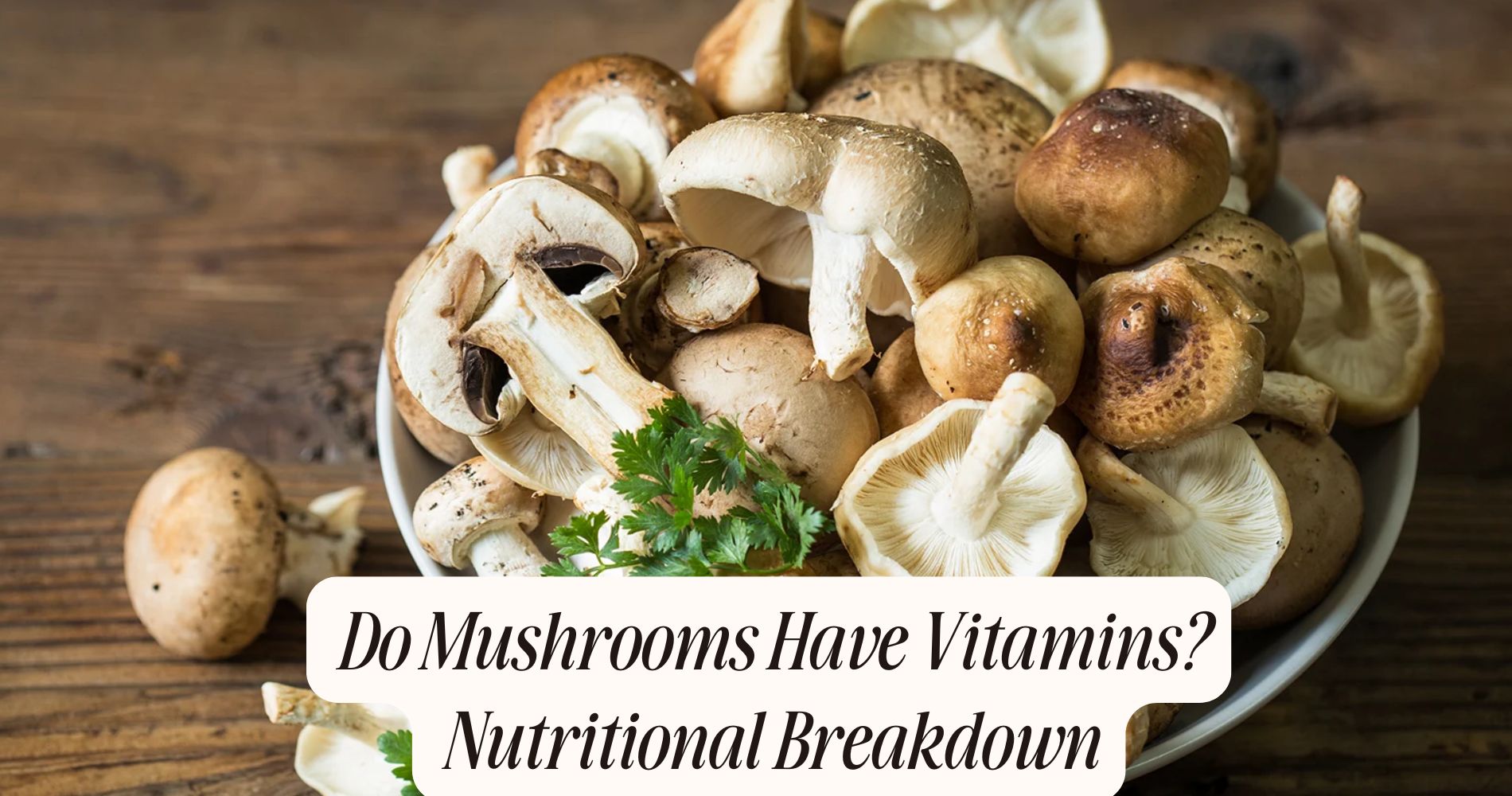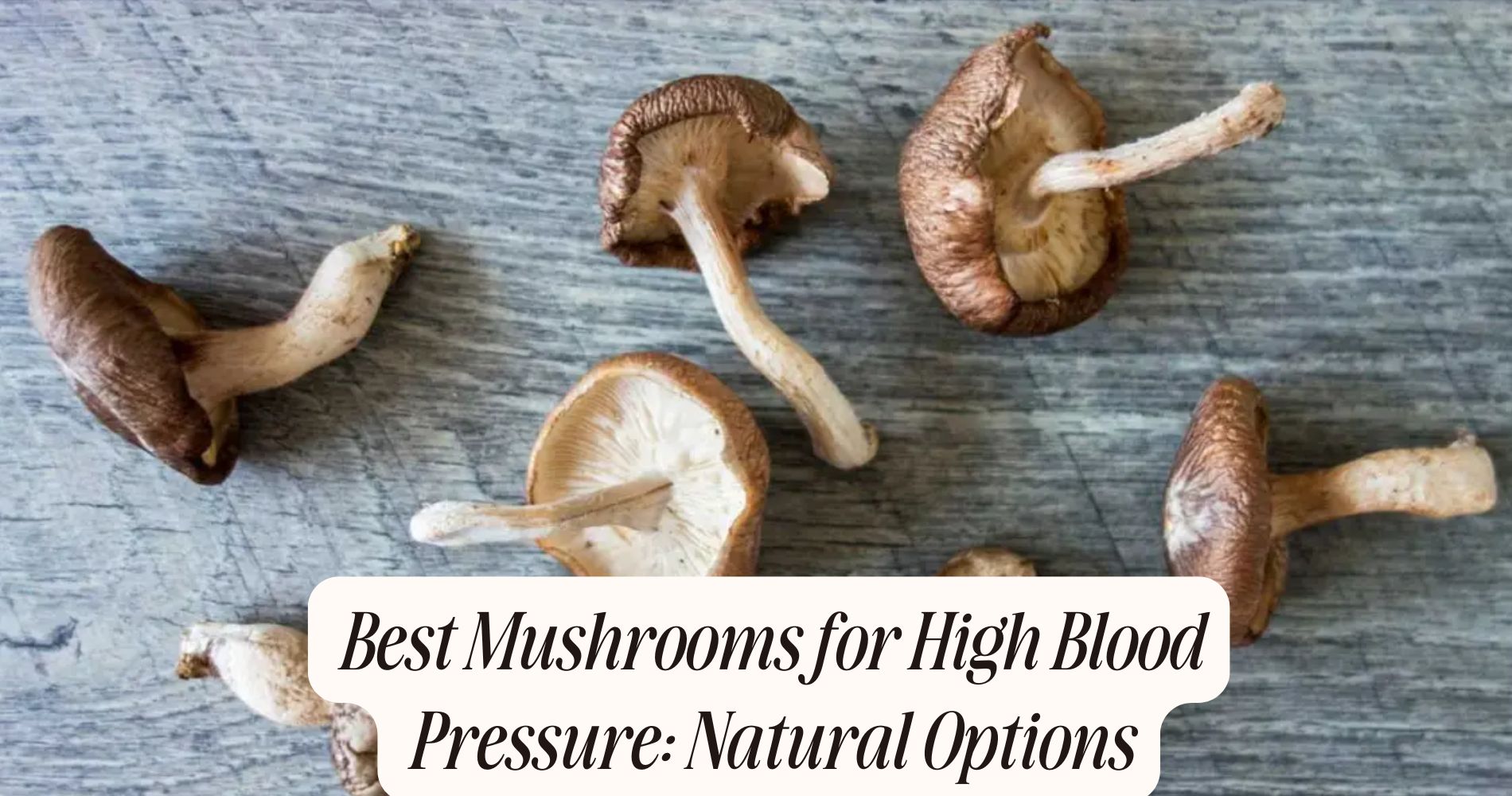
Mushrooms with Most Protein: Top Picks for Nutrition
Nutritional Benefits of Mushrooms
When you consider the nutritional benefits of mushrooms, you'll find they pack a powerful punch. These fungi aren't just low in calories; they also boast impressive vitamin content. For example, mushrooms are rich in B vitamins, including riboflavin, niacin, and pantothenic acid, which are essential for energy production and overall health.
In addition to their vitamin profile, mushrooms are known for their antioxidant properties. They contain compounds like ergothioneine and selenium that help combat oxidative stress in your body. By including mushrooms in your diet, you're not just adding flavor; you're also boosting your body's defenses against free radicals.

Moreover, mushrooms are a great source of minerals like potassium, which supports heart health and helps regulate blood pressure. Their unique composition makes them a versatile ingredient, whether you're tossing them in a salad or sautéing them as a side dish.
Top Protein-Rich Mushroom Varieties
When it comes to protein-rich mushrooms, shiitake, maitake, and oyster varieties stand out.
You'll find that each offers unique nutritional benefits that can enhance your meals.
Let's explore how these mushrooms can boost your protein intake and overall health.
Shiitake Mushroom Benefits
If you're looking to boost your protein intake, shiitake mushrooms are a fantastic choice. These flavorful fungi pack about 2.2 grams of protein per 100 grams, making them a great addition to your diet. Beyond their protein content, shiitake mushrooms offer a wealth of health benefits. They contain essential amino acids, vitamins, and minerals that support overall well-being.
If you're interested in shiitake cultivation, you'll find it relatively easy to grow them at home. With a few supplies and some patience, you can enjoy fresh shiitake mushrooms right from your garden.
Incorporating shiitake mushrooms into your meals is simple, too. You can experiment with various shiitake recipes, from stir-fries to soups. Their rich, umami flavor complements a variety of dishes and elevates your culinary creations.
Additionally, shiitake mushrooms are known to support your immune system and improve heart health, thanks to their anti-inflammatory properties.
Maitake Mushroom Nutrition
Maitake mushrooms, also known as "hen of the woods," are a top contender in the protein-rich mushroom category, offering about 3.1 grams of protein per 100 grams. These versatile fungi not only pack a protein punch but also bring a wealth of nutrients to the table.
They're rich in vitamins B and D, as well as antioxidants, which can support your immune system and overall health.

Incorporating maitake into your diet is easy. You can sauté them with garlic and olive oil for a delicious side dish, or toss them into a stir-fry for an extra protein boost.
Consider adding them to soups or stews to enhance both flavor and nutrition. If you're feeling adventurous, try making maitake risotto for a hearty meal that highlights their unique texture.
The maitake benefits extend beyond just nutrition. They may help regulate blood sugar levels and support weight management.
Oyster Mushroom Protein Content
Oyster mushrooms are a fantastic source of plant-based protein, boasting about 3.3 grams of protein per 100 grams. This makes them a great choice if you're looking to boost your protein intake without relying on animal products. Among the various oyster mushroom varieties, you'll find names like Pleurotus ostreatus and Pleurotus eryngii, both packed with nutrients and flavor.
Incorporating oyster mushrooms into your diet is easy and delicious. You can sauté them, add them to stir-fries, or include them in soups. Their meaty texture makes them an excellent substitute in recipes that typically call for meat. If you're keen to try some oyster mushroom recipes, consider making a creamy oyster mushroom pasta or a savory mushroom risotto.
Aside from their protein content, oyster mushrooms also offer a wealth of other nutrients, including fiber, vitamins, and minerals. By adding these versatile fungi to your meals, you're not just enhancing flavor but also elevating your nutritional profile.
Comparing Protein Content
Now that you know which mushrooms pack the most protein, it's time to compare their nutritional content.
You'll also want to contemplate how different cooking methods can impact their protein levels.
Let's explore these factors to help you make the best choices for your meals.
High-Protein Mushroom Varieties
Often overlooked in the conversation about high-protein foods, certain mushroom varieties can pack a surprisingly robust protein punch. For instance, shiitake mushrooms offer around 2.2 grams of protein per 100 grams, making them a fantastic addition to your meals.
You might also consider portobello mushrooms, which provide about 3 grams of protein in the same serving. When you're exploring cooking techniques, grilling or sautéing these mushrooms can enhance their flavors while preserving their nutritional benefits.

Don't forget about oyster mushrooms, too; they deliver about 3.3 grams of protein per 100 grams and add a unique texture to dishes.
If you're looking for a protein boost, try incorporating these high-protein mushroom varieties into your daily diet. Whether you toss them in salads, stir-fries, or pasta dishes, they can elevate your meals without sacrificing taste.
Plus, the versatility of mushrooms means you can experiment with various cooking techniques to find what you enjoy best. So next time you're planning a meal, think about adding some of these protein-rich mushrooms to your plate for a delicious and nutritious enhancement.
Nutritional Comparison Chart
When it comes to selecting mushrooms for their protein content, a nutritional comparison chart can be a valuable tool. By comparing different mushroom varieties, you'll quickly see which ones offer the most protein per serving.
For instance, shiitake and portobello mushrooms are often recognized as excellent protein sources, boasting higher protein levels than many other varieties. In the chart, you might notice that a 100-gram serving of shiitake mushrooms offers around 2.2 grams of protein, while portobello mushrooms provide about 2.5 grams.
On the other hand, white button mushrooms typically contain about 3 grams of protein in the same serving size.
Examining the nutritional comparison chart not only highlights the protein content but also showcases other essential nutrients these mushroom varieties provide, like vitamins D and B, as well as minerals.
This way, you can make informed choices based on your dietary needs. So, whether you're looking to boost your protein intake or simply enjoy a nutritious addition to your meals, focusing on the right mushrooms will help you achieve your nutritional goals.
Cooking Methods Impacting Protein
Cooking methods can considerably impact the protein content of mushrooms, altering not just their nutritional value but also their flavor and texture. When you choose your cooking techniques, it's vital to take into account how they affect protein retention.
For instance, boiling mushrooms can lead to significant nutrient loss, as the proteins leach into the water. Instead, try sautéing or roasting, which not only preserves more protein but also enhances their natural flavors.
Steaming is another excellent option, as it helps maintain both texture and nutrients. If you're grilling mushrooms, be sure not to overcook them, as high temperatures can degrade protein quality.
On the other hand, marinating before cooking can help retain moisture and improve overall taste.
For stir-frying, using a quick, high-heat method can lock in protein while adding vibrant flavors.
Cooking Tips for Protein Preservation
Preserving protein while cooking mushrooms is essential for maximizing their nutritional value. To achieve this, you'll want to focus on specific cooking methods that minimize protein loss. One effective approach is using sautéing techniques. When you sauté mushrooms quickly over medium-high heat, you not only enhance their flavor but also trap in their nutrients. Just be sure to use a minimal amount of oil and keep the cooking time short to retain as much protein as possible.
Another excellent option is steaming. Steaming benefits mushrooms by allowing them to cook evenly without direct exposure to high heat, which can break down proteins. This method helps maintain their texture and nutritional content. If you choose to steam, consider adding herbs or spices to infuse some extra flavor without compromising protein preservation.
Regardless of the method, it's important to avoid overcooking. Overcooked mushrooms can lose not only their protein but also essential vitamins.
Incorporating Mushrooms Into Meals
Mushrooms are a versatile ingredient that can easily enhance your meals while boosting their protein content. When meal planning, think about how you can incorporate various mushroom recipes into your weekly menu.
Whether you're sautéing, grilling, or roasting them, mushrooms add depth and flavor to countless dishes.
Start with simple mushroom recipes like a hearty mushroom stir-fry or a savory mushroom risotto. You can also blend finely chopped mushrooms into your favorite meat dishes, like burgers or meatballs, to increase the protein without overpowering the flavor.

If you're looking for a meatless option, consider a stuffed portobello mushroom topped with cheese, grains, and vegetables for a filling meal.
Don't forget to experiment with different types of mushrooms. Shiitake, cremini, and oyster mushrooms all have unique flavors that can elevate your cooking.
Try adding them to soups, salads, and pasta dishes. By including mushrooms in your meal planning, you'll not only enjoy a delicious variety but also reap the nutritional benefits they offer.
Health Benefits Beyond Protein
While you might think of mushrooms primarily for their protein content, they offer a wealth of other health benefits that deserve attention. These fungi are packed with immune support, helping your body fend off infections and illnesses.
Their high fiber content promotes digestive health, nourishing your gut microbiome and improving overall gut function.
Mushrooms also boast impressive antioxidant properties, which combat oxidative stress and inflammation in your body. This can lead to better heart health and weight management, as they're low in calories but high in nutrients.
Plus, the anti-inflammatory effects of certain mushroom varieties can help reduce chronic inflammation, benefiting those with inflammatory conditions.
When it comes to vitamin absorption, mushrooms can enhance your body's ability to utilize essential nutrients effectively.
If you're diabetic, these fungi can offer diabetic benefits by stabilizing blood sugar levels and improving insulin sensitivity.
Finally, don't overlook their mood enhancement potential—some mushrooms can support brain health and elevate your mood, making them a fantastic addition to your diet.
Frequently Asked Questions
Can Mushrooms Replace Meat in a High-Protein Diet?
You can definitely consider mushrooms as meat alternatives in a high-protein diet. Their mushroom nutrition offers unique benefits, and while they won't fully replace meat, they can complement your meals and boost overall protein intake.
Are There Any Protein-Rich Mushrooms Suitable for Vegans?
Yes, you can find protein-rich mushrooms like shiitake and portobello that offer great nutritional benefits. Incorporate them into your vegan recipes for a hearty meal, boosting flavor and protein without compromising your dietary choices.
How Do Mushrooms Compare to Legumes in Protein Content?
When you compare mushroom varieties to legumes as protein sources, you'll find legumes generally contain higher protein levels. However, mushrooms offer unique nutrients and can complement your diet, enriching your meals with flavor and variety.
What Is the Best Way to Store Protein-Rich Mushrooms?
To store protein-rich mushrooms effectively, keep 'em in a paper bag in the fridge. This method aids mushroom storage and protein preservation by allowing airflow, preventing moisture buildup, and keeping your mushrooms fresh longer.
Can Cooking Methods Affect the Protein Content in Mushrooms?
Yes, cooking techniques can affect protein retention in mushrooms. When you sauté or steam them, they retain more protein compared to boiling. Experiment with different methods to maximize the nutritional benefits of your mushroom dishes.
Conclusion
Incorporating protein-rich mushrooms into your diet is an easy way to boost your nutrition. With varieties like shiitake, oyster, and portobello, you've got plenty of delicious options to choose from. Remember to use cooking methods that preserve their protein content, and try adding them to your favorite meals for an extra health kick. Beyond their protein, mushrooms offer numerous health benefits, making them a fantastic addition to any balanced diet. Enjoy experimenting with these nutritious gems!




